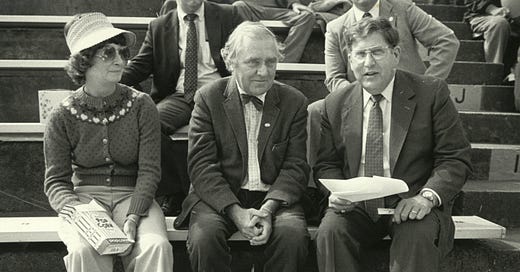From Burke to MAGA: The Conservative Catastrophe
A tale of two conservatives, Part I: Jeffrey Hart
When I was growing up in Hanover, there was an august English professor at Dartmouth named Jeffrey Hart. Hart was known around town as a “conservative.” That made him a rarity, but not because the Ivy League was stacked with tenured radicals, as right-wing alarmists have complained since 1949.
Instead, conservative literary critics were rare because their methodology was obsolete. By the ’50s—with the advent of the chic New Criticism—a “conservative critic” would have been one who extracted moral lessons from poetry, by arguing, for example, that medieval poets confirmed the immorality of extramarital sex with the image of righteous sunlight exposing adulterous lovers.
By the 1970s, those kind of conservatives might teach at a Christian college. But they wouldn’t get jobs in the increasingly secular Ivy League.
At Dartmouth in that period, English professors—whoever they voted for—were arguing stuff like (1) Shakespeare’s history plays disproportionately shape the modern understanding of medieval English kings (Peter Saccio); (2) the aching desire for love, warmth, and security always informs cross-cultural analysis (Blanche Gelfant); and (3) the French Revolution is best conceived of through poetry and art (my own pops!).
Keep reading with a 7-day free trial
Subscribe to Magic + Loss to keep reading this post and get 7 days of free access to the full post archives.





